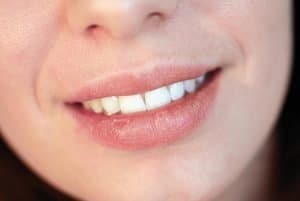Causes of Dry Mouth and how to Avoid and Treat It

Dry mouth is the unpleasant feeling you get when you’re not generating enough saliva to meet your needs.
When your mouth fails to produce enough saliva, you eventually find yourself with problems bigger than a simple case of thirst.
Most times, dry mouth is caused by something simple, like dry weather or personal dehydration or weather. But if you constantly suffer from dry mouth irrespective of the season and how much you drink, it could mean you have a more serious condition—such as an autoimmune disease that causes dry mouth.
At Warner Lakes Dental, we’d like to introduce you to dry mouth – a little known but potentially quite damaging dental condition.
Five dangers of dry mouth
Number one, bad breath. This is because when your mouth is dry you are producing less saliva, which normally fights the aerobic bacteria that cause bad breath. Less saliva also means that small particles of food are not cleaned out as efficiently, and they stay in the mouth and between teeth.
Number two, tooth decay. Saliva contains minerals that help to re-mineralize your teeth. This remineralization protects you against tooth decay.
Number three, gum disease. Once more, we come across the antibacterial properties in saliva. Saliva helps protect against gingivitis and periodontitis by keeping bacteria away.
Number four — Uncontrolled tooth decay and gum disease leads to tooth loss.
Number five, you cannot swallow food properly. The bolus of food — that’s a technical term for the amount of food that you’re chewing at the time — is not damp enough to swallow. This problem is particularly acute among older patients.
Causes of dry mouth Side effect of certain diseases and infections. Dry mouth can be caused by medical conditions, including Sjögren’s syndrome, HIV/AIDS, Alzheimer’s disease, diabetes, anemia, cystic fibrosis, rheumatoid arthritis, hypertension, Parkinson’s disease, stroke, and mumps.
Side effect of certain medical treatments. Damage to the salivary glands can reduce the amount of saliva produced. For example, the damage could stem from radiation to the head and neck, and chemotherapy treatments.
Dehydration. Conditions that lead to dehydration, such as excessive sweating, fever, vomiting, bulimia, anorexia, diarrhea, and blood loss, can lead to dry mouth.
Lifestyle. Smoking or chewing tobacco can affect how much saliva you make and aggravate dry mouth. Breathing with your mouth open a lot can also contribute to the problem.
Side effect of certain medications.
Dry mouth can also be caused by medications including:
- Pain pills
- Blood pressure medications
- Decongestants
- Antidepressants
- Medications for overactive bladder
- Diuretics
- Antihistamines
- Muscle relaxants
- Medications for Parkinson’s disease
To minimize your dry mouth
- Drink water frequently to moisten your mouth. Carry water with you to sip throughout the day and keep water by your bed at night.
- Suck on sugar-free hard candies, ice chips, or sugar-free popsicles. Chew sugarless gum These sucking and chewing actions help stimulate saliva flow.
- Moisten foods with broths, soups, sauces, gravy, creams, and butter or margarine. Eat soft, moist foods that are cool or at room temperature.
- Avoid mouth rinses or mouthwashes containing alcohol or peroxide.
- Avoid salty foods, dry foods, and sticky foods.
Avoid these bad habits
Do you need another reason give up sugar, caffeine, alcohol and smoking? Each of these contribute to dry mouth. Caffeine (found in coffee, tea, sodas and chocolate) and alcohol are diuretics. They flush out liquids, including the saliva that defends your mouth and teeth. Smoking and tobacco use inhibits saliva production and irritates your mouth, sometimes leading to ulceration and even cancer. At the same time, sugar increases the acidity within your mouth, that when combined with a lack of saliva, can greatly increase your chance for tooth decay and gum disease.
What can Warner Lakes Dental do?
In serious cases of dry mouth Warner Lakes Dental may recommend the use of artificial saliva products. These are available over-the-counter in spray or rinse forms. Toothpastes, mouthwashes, and moisturizing gels that are specially designed for patients with dry mouth are also available. In some cases, fluoride treatment, either at home or in-office, may be called for. Ask us about these products and treatments.
We can help with your dry mouth!
The Warner Lakes Dental Care Experience
Your Warner dentist wants your visit to be the quickest and most convenient dental experience possible! From parking to treatment, we try to make the entire process as simple and painless as possible! From routine check-ups and cleans to root canals, extractions, and cosmetic treatments, Warner Lakes Dental is your partner in dental health.
Call us on (07) 3477 9925 or book your appointment online TODAY!
